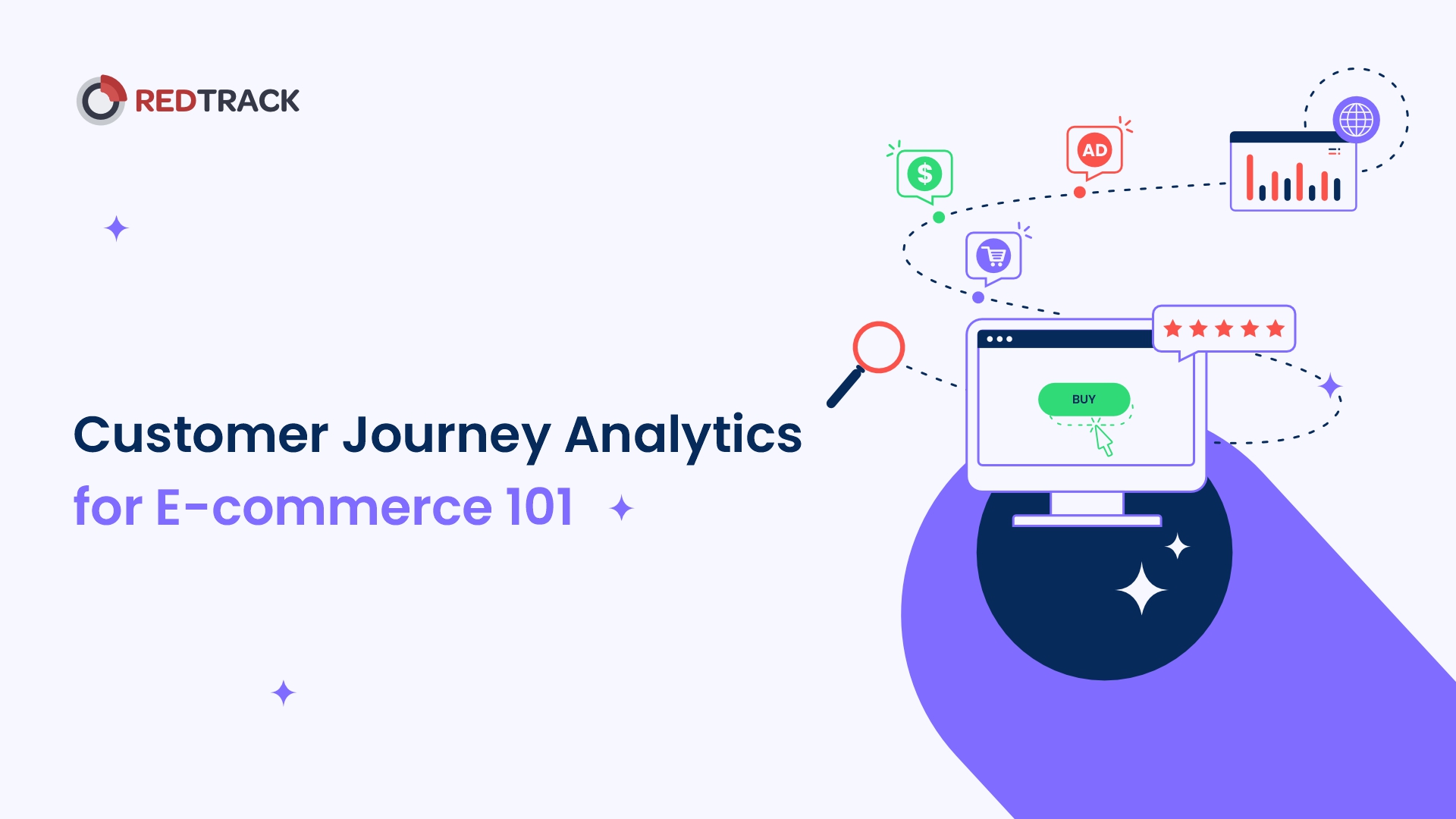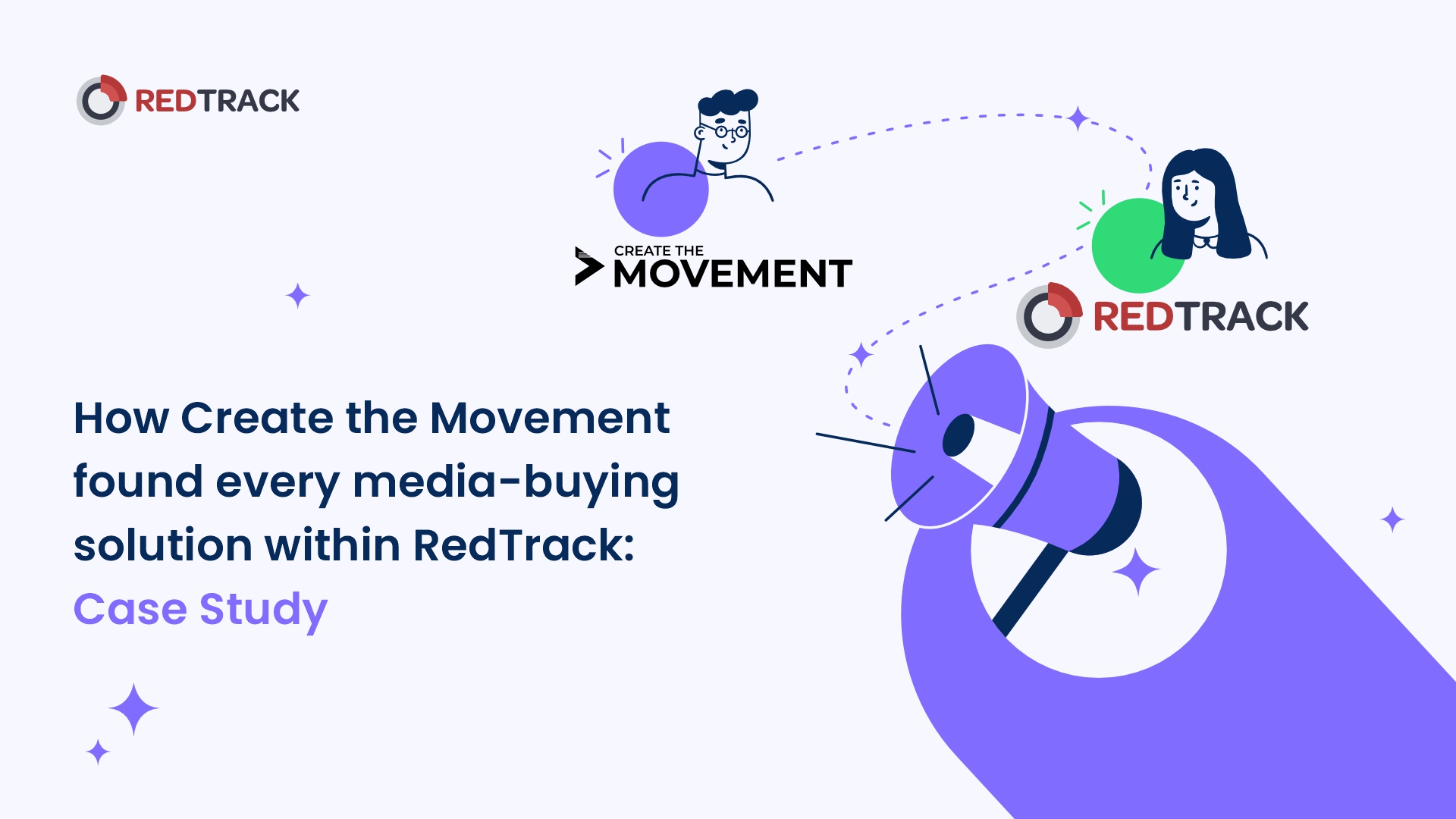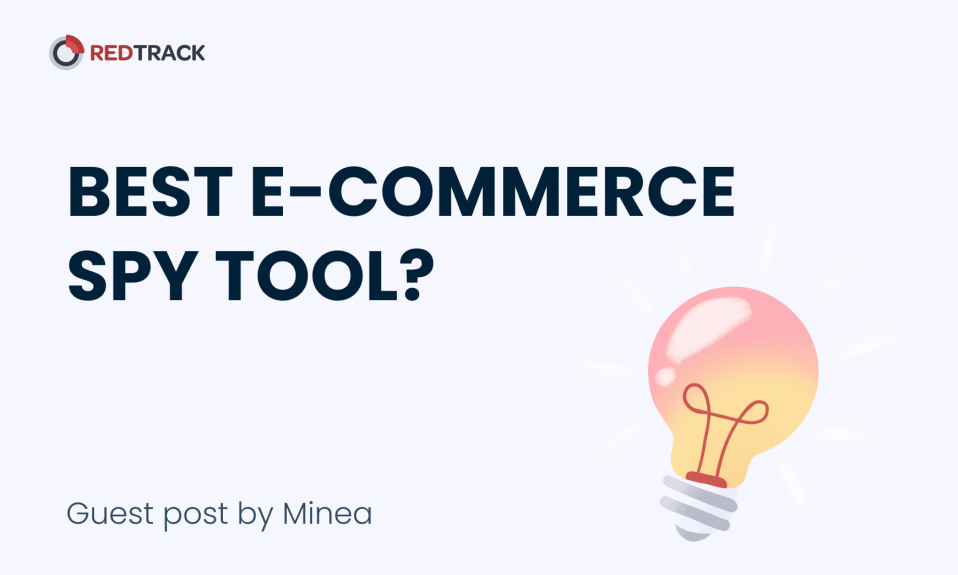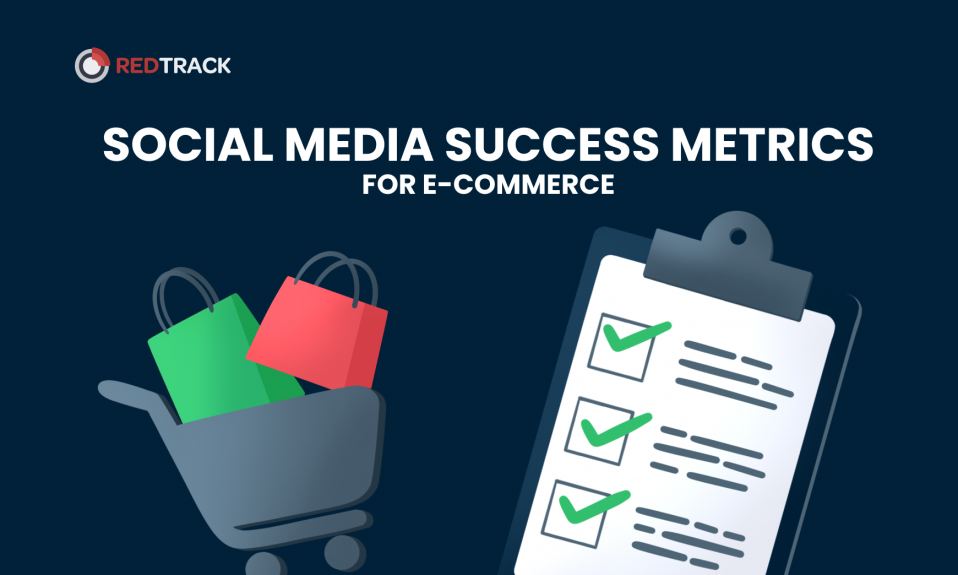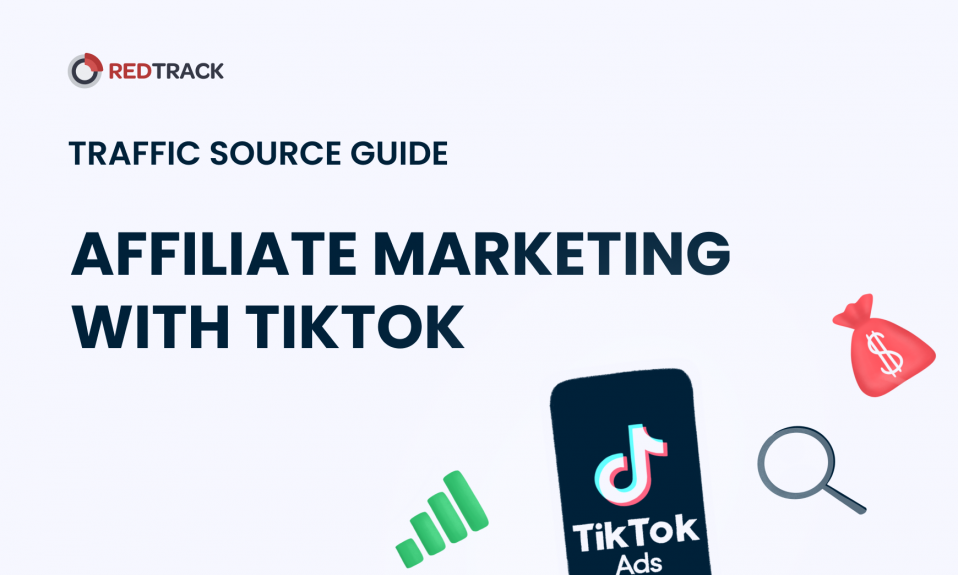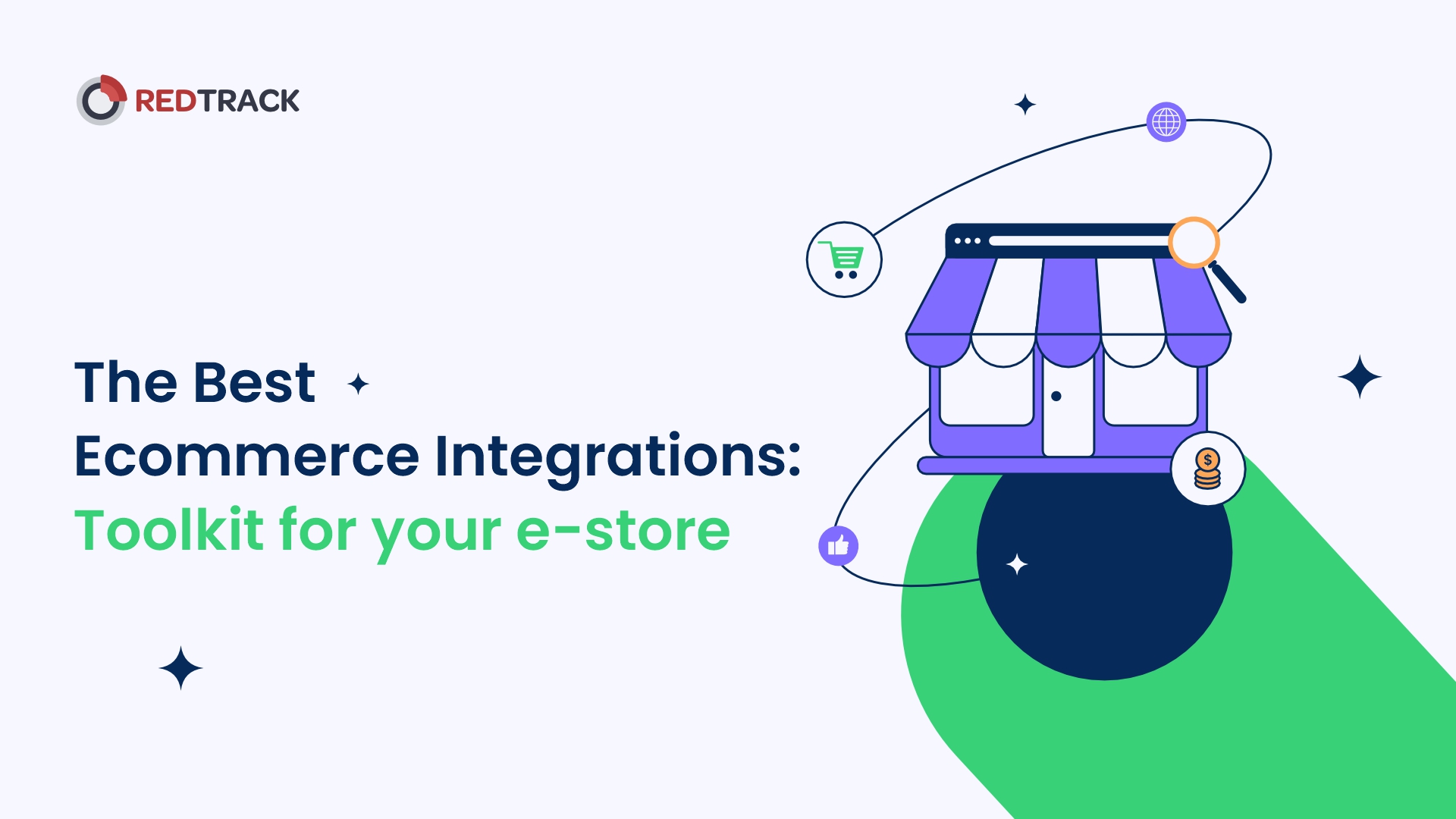
Running an e-commerce business is trendy today. But is it easy? Well, despite what every online guru might tell you, running e-businesses can be as challenging as it can get. So, optimizing processes and workflow should be a top priority for anyone starting (or continuing 🙂 online stores.
Automation and optimization of e-commerce is impossible without integrations with marketing, shipping, fulfillment, and other solutions.
Therefore, we dedicate this integration guide to you, e-com store owner, to help you fight mundane routine tasks and automate your business early on. This guide focuses on marketing automation simply because it’s our mission at RedTrack to make your advertising efforts more efficient, saving you time and scaling your revenue.
What are E-commerce Integrations?
E-commerce integrations are the connectors, or let’s say bridges, that link various aspects of your online store to streamline operations and improve functionality.
They allow you to synchronize different tools and services you use in your e-commerce business, making them work in harmony together. Whether you’re managing your website, inventory, customer relations, or marketing efforts, integrations can make the entire process smoother and more efficient.
Depending on which tools you use, you can integrate them with your e-com platform of choice (like Shopify, WooCommerce, Magento, etc.) to align various activities in a single place.
Why e-stores need e-commerce integrations
The need for e-commerce integrations cannot be overstated. Here’s why they are essential for online businesses:
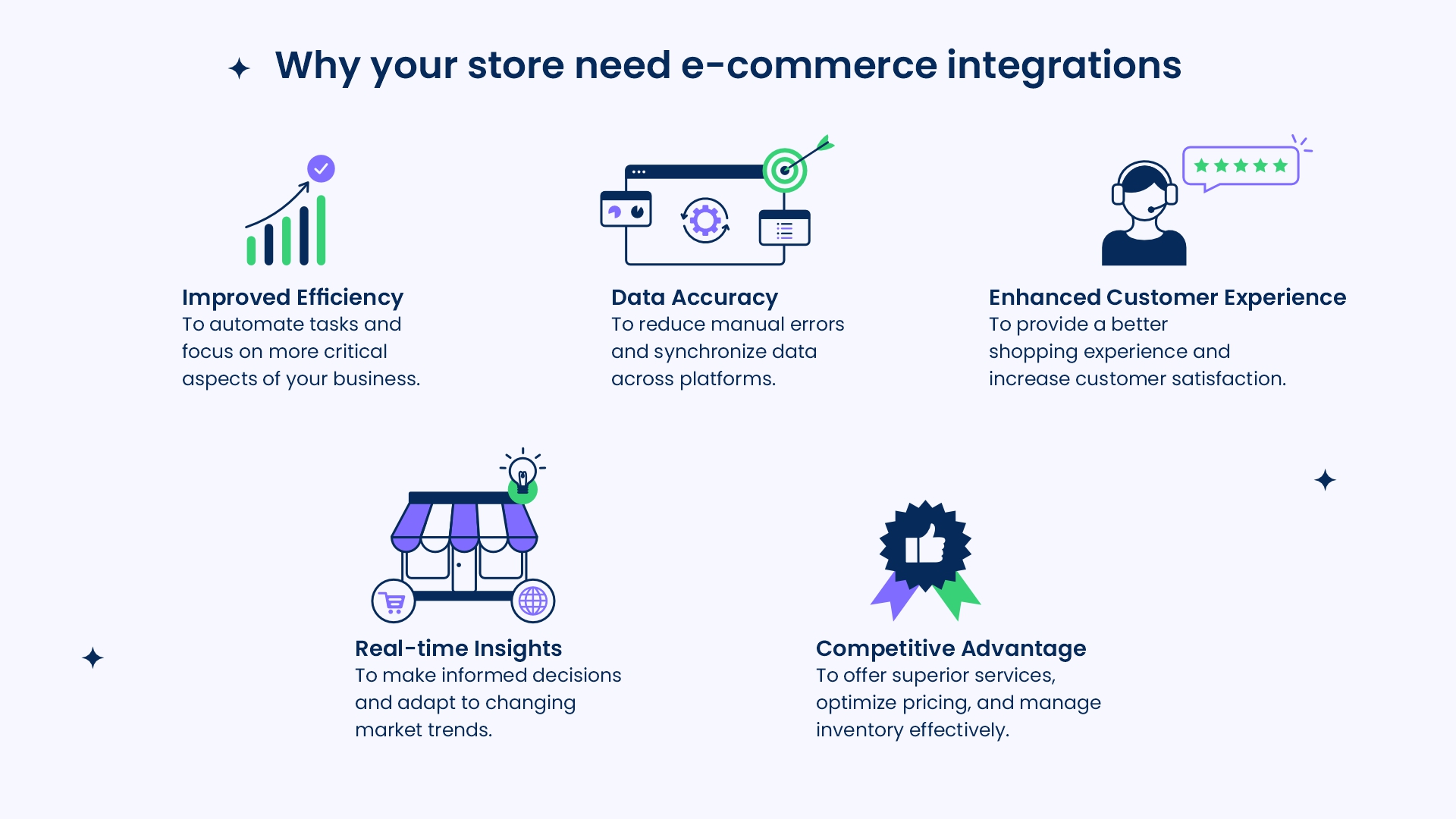
- Improved Efficiency: Integrations automate tasks that would otherwise be time-consuming and error-prone, allowing you to focus on more critical aspects of your business.
- Data Accuracy: Integrations reduce the risk of data discrepancies and manual errors by synchronizing data across platforms.
- Enhanced Customer Experience: A seamless integration between your store and customer relationship management tools helps you provide a better shopping experience, leading to increased customer satisfaction and loyalty.
- Real-time Insights: Integrations often provide real-time data and analytics, enabling you to make informed decisions and adapt to changing market trends.
- Competitive Advantage: In a highly competitive online market, efficient integrations can give you an edge, allowing you to offer superior services, optimize pricing, and manage inventory effectively.
Challenges and Obstacles of Implementation for Ecommerce Owners
While ecommerce integrations offer a bunch of benefits, their implementation is not without its challenges:
- API access: Integrating different tools and systems can be complex, especially if they weren’t initially designed to work together. Compatibility issues can lead to unexpected technical difficulties. In order for integrations to work successfully, you need to have a strong development team who can understand API access and connect platforms on that back-end.
- Cost Considerations: Sometimes, setting up integration can be quite costly. Therefore, as a small or medium business owner, you should consider going for solutions that provide easy templated integrations with your e-com platform (choosing Shopify or WooCommerce is always the best way to ensure you have plenty of solutions to integrate it with).
- Security Concerns: Ensure how trustworthy the tool you are integrating with is, to avoid the risk of putting your business security at risk.
- Training and Adaptation: Your team might need some time to adapt to the new working process. When choosing your e-commerce integrations, it’s best to give your favor to the tools that have helpful guidelines, articles, and videos that can assist in fighting the learning curve.
Top e-commerce integrations toolset
For e-commerce owners starting their integration journey, here’s a basic kit of integrations to consider:
1. Reliable payment gateway for e-stores
Choose a reliable payment gateway like PayPal, Stripe, or Square to ensure smooth and secure transactions. Finances are one of the niches where you have to look out for top security since your customers will use their bank details to complete orders. If your payment window looks shady — it can affect the success of your business.
2. Inventory Management / Fulfillment tools to keep track of your retail stock
Implement an inventory management integration to keep track of your stock and prevent overselling. Some of the best tools out there are:
- ShipBob — From memorable unboxing experiences to faster shipping, ShipBob provides best-in-class supply chain solutions and fulfills global orders from the US, UK, EU, Canada, and Australia.
- inFlow — track inventory and orders, reorder ahead of time to prevent limited stock or overselling, fulfill everything from your phone!
- Linnworks — from inventory and warehouse management through to order fulfillment and reporting – from a single, centralized platform.
3. CRMs for e-commerce business
A customer relationship management system (CRM) is essential to e-commerce business growth and development. CRM will help you organize your customer data, nurture relationships with your customers, personalize messages for various groups, and many other benefits. Most commonly recommended CRMs for e-commerce are:
- Zoho — robust automation, comprehensive analytics, personalized solutions, and more.
- Salesforce — create seamless, personalized customer experiences everywhere, from shopping, to fulfillment, to customer service and beyond.
- Nutshell — Provide an excellent customer experience that makes loyal and new customers happy with easy-to-use customer relationship management (CRM) software like Nutshell.
E-commerce marketing integrations
One of the top categories of integrations is marketing and advertising tools. Since e-commerce businesses depend highly on marketing and advertising strategy success, integrating your marketing stack is one of the first priorities when optimizing your business’ performance. Here we are gonna cover several categories of marketing tools: from social media management to analytics & automation!
Analytics & Automation for e-commerce
Every e-com store runs paid ads to achieve its business goals. Once your ad budget goes out of $10k a month, you should consider integrating an analytics & automation solution for your ads. It will help keep track of your campaigns, identify the most profitable ones, and cut the costs on the ads that don’t bring you nice returns!
RedTrack for e-commerce
RedTrack — is an all-in-one analytics & automation platforms for advertisers working with e-commerce and affiliate marketing. Here you can find solutions like:
- Real-time ad tracking & 100% accurate attribution of the revenue to the right ads;
- Reports & Dashboards that help you get an instant overview of the success of your campaigns;
- Automation features that help you prevent ad waste, and scale the most profitable ads automatically;
- A toolset to start your own affiliate program and increase profits.
RedTrack has in-built integrations with Shopify, WooCommerce, BigCommerce, Magento, and other e-commerce solutions. Start RedTrack with a free plan for any e-com store.
Email & SMS marketing solutions:
Drip — with Drip you can automate and personalize your email marketing, creating custom sequences for various triggers.
Mailerlite has various tools for growing or nurturing your audience: automated emails, landing page builder, sign up forms, etc.
Omnisend — Collect, convert and keep new customers with automated email & SMS — all for less than the leading ESP.
Sendlane — Unified email, SMS, and reviews for eCommerce. Spend less time building emails and more time creating experiences that drive your store growth. Besides
Social media management tools:
Is social media part of your marketing strategy? Here are your best choices to integrate for e-com business to establish a true flow.
Buffer —this solution helps to schedule your social media posts, distribute it across platforms, and build relationships with your customers.
Hootsuit — this platform combines social media scheduling, analytics, a unified social media inbox, and social listening tools! You can also automate your experience with social media: Hootsuite’s AI social media writer handles the first draft for you.
Sprout Social — with this tool you can cover social listening, SMM content planning & scheduling, as well as repurposing your content. For example, you can use it for creating podcasts!
Afterwords
Hope this guide was of help for you, e-com store owner, and you will be ready to optimize and automate all the processes in your business early on.





